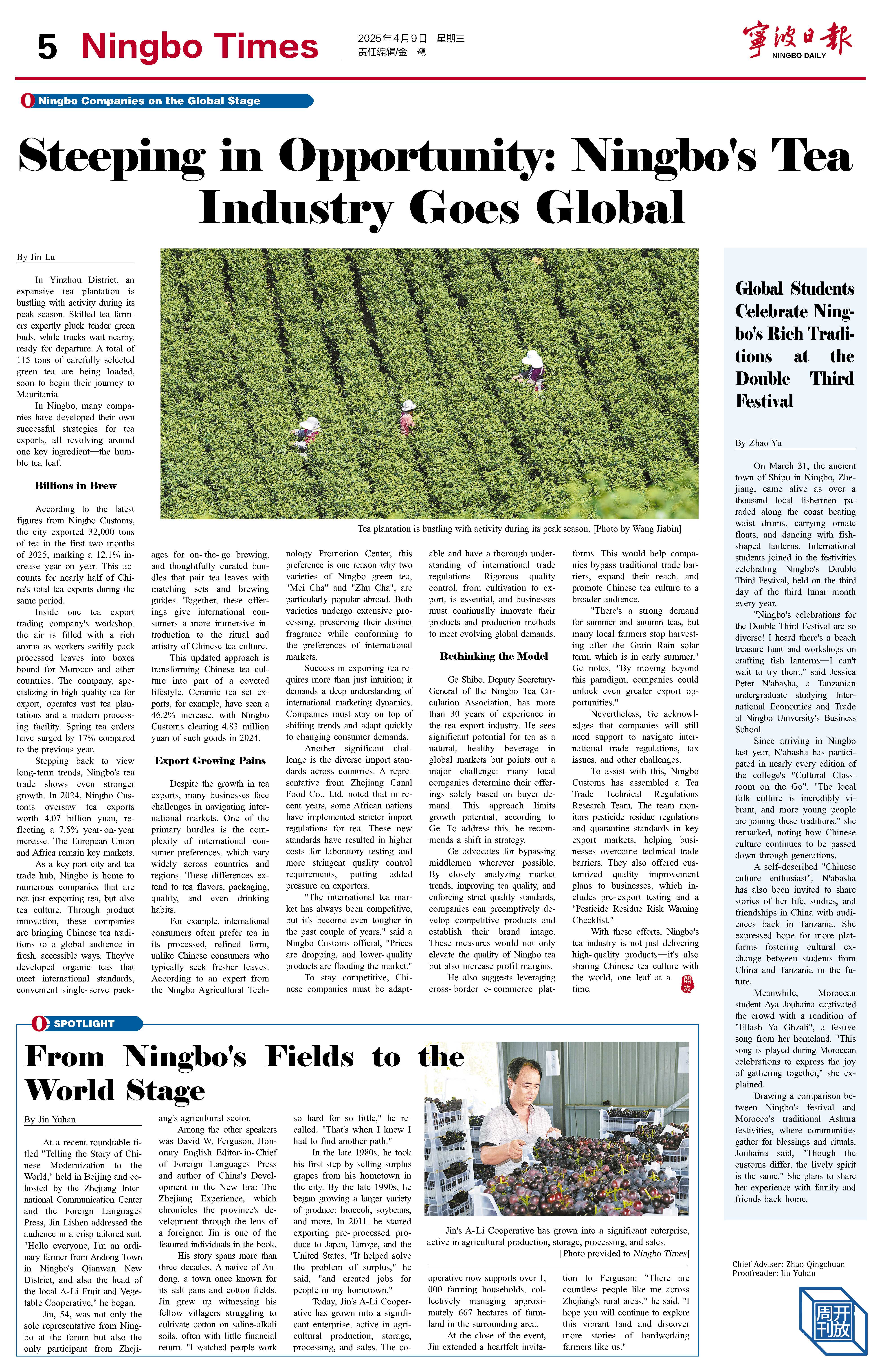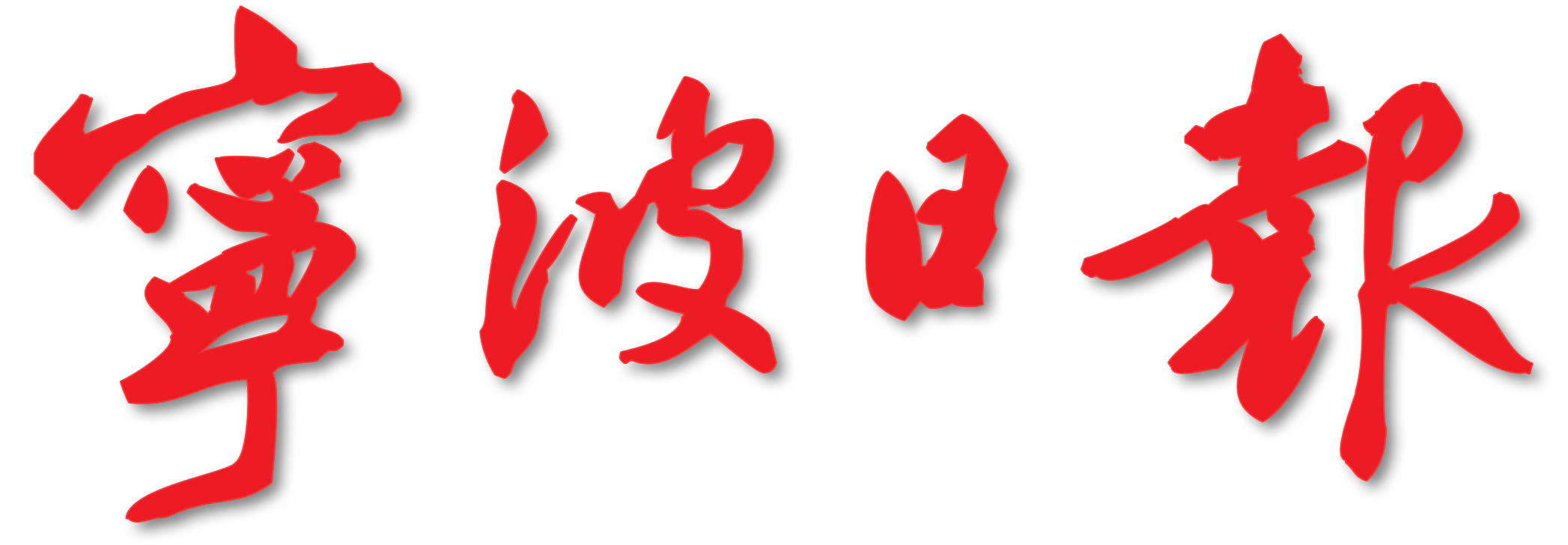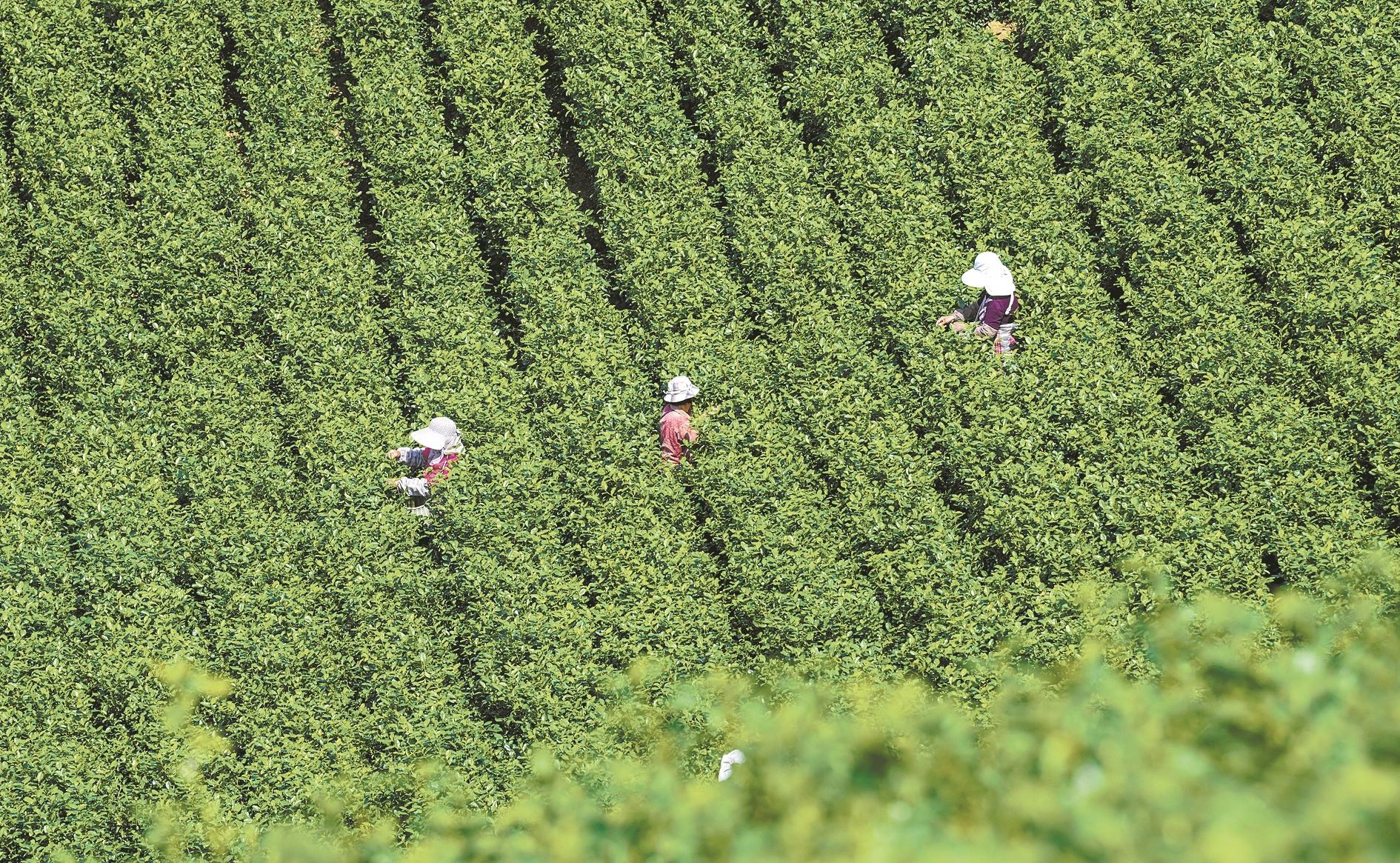By Jin Lu
In Yinzhou District, an expansive tea plantation is bustling with activity during its peak season. Skilled tea farmers expertly pluck tender green buds, while trucks wait nearby, ready for departure. A total of 115 tons of carefully selected green tea are being loaded, soon to begin their journey to Mauritania.
In Ningbo, many companies have developed their own successful strategies for tea exports, all revolving around one key ingredient—the humble tea leaf.
Billions in Brew
According to the latest figures from Ningbo Customs, the city exported 32,000 tons of tea in the first two months of 2025, marking a 12.1% increase year-on-year. This accounts for nearly half of China's total tea exports during the same period.
Inside one tea export trading company's workshop, the air is filled with a rich aroma as workers swiftly pack processed leaves into boxes bound for Morocco and other countries. The company, specializing in high-quality tea for export, operates vast tea plantations and a modern processing facility. Spring tea orders have surged by 17% compared to the previous year.
Stepping back to view long-term trends, Ningbo's tea trade shows even stronger growth. In 2024, Ningbo Customs oversaw tea exports worth 4.07 billion yuan, reflecting a 7.5% year-on-year increase. The European Union and Africa remain key markets.
As a key port city and tea trade hub, Ningbo is home to numerous companies that are not just exporting tea, but also tea culture. Through product innovation, these companies are bringing Chinese tea traditions to a global audience in fresh, accessible ways. They've developed organic teas that meet international standards, convenient single-serve packages for on-the-go brewing, and thoughtfully curated bundles that pair tea leaves with matching sets and brewing guides. Together, these offerings give international consumers a more immersive introduction to the ritual and artistry of Chinese tea culture.
This updated approach is transforming Chinese tea culture into part of a coveted lifestyle. Ceramic tea set exports, for example, have seen a 46.2% increase, with Ningbo Customs clearing 4.83 million yuan of such goods in 2024.
Export Growing Pains
Despite the growth in tea exports, many businesses face challenges in navigating international markets. One of the primary hurdles is the complexity of international consumer preferences, which vary widely across countries and regions. These differences extend to tea flavors, packaging, quality, and even drinking habits.
For example, international consumers often prefer tea in its processed, refined form, unlike Chinese consumers who typically seek fresher leaves. According to an expert from the Ningbo Agricultural Technology Promotion Center, this preference is one reason why two varieties of Ningbo green tea, "Mei Cha" and "Zhu Cha", are particularly popular abroad. Both varieties undergo extensive processing, preserving their distinct fragrance while conforming to the preferences of international markets.
Success in exporting tea requires more than just intuition; it demands a deep understanding of international marketing dynamics. Companies must stay on top of shifting trends and adapt quickly to changing consumer demands.
Another significant challenge is the diverse import standards across countries. A representative from Zhejiang Canal Food Co., Ltd. noted that in recent years, some African nations have implemented stricter import regulations for tea. These new standards have resulted in higher costs for laboratory testing and more stringent quality control requirements, putting added pressure on exporters.
"The international tea market has always been competitive, but it's become even tougher in the past couple of years," said a Ningbo Customs official, "Prices are dropping, and lower-quality products are flooding the market."
To stay competitive, Chinese companies must be adaptable and have a thorough understanding of international trade regulations. Rigorous quality control, from cultivation to export, is essential, and businesses must continually innovate their products and production methods to meet evolving global demands.
Rethinking the Model
Ge Shibo, Deputy Secretary-General of the Ningbo Tea Circulation Association, has more than 30 years of experience in the tea export industry. He sees significant potential for tea as a natural, healthy beverage in global markets but points out a major challenge: many local companies determine their offerings solely based on buyer demand. This approach limits growth potential, according to Ge. To address this, he recommends a shift in strategy.
Ge advocates for bypassing middlemen wherever possible. By closely analyzing market trends, improving tea quality, and enforcing strict quality standards, companies can preemptively develop competitive products and establish their brand image. These measures would not only elevate the quality of Ningbo tea but also increase profit margins.
He also suggests leveraging cross-border e-commerce platforms. This would help companies bypass traditional trade barriers, expand their reach, and promote Chinese tea culture to a broader audience.
"There's a strong demand for summer and autumn teas, but many local farmers stop harvesting after the Grain Rain solar term, which is in early summer," Ge notes, "By moving beyond this paradigm, companies could unlock even greater export opportunities."
Nevertheless, Ge acknowledges that companies will still need support to navigate international trade regulations, tax issues, and other challenges.
To assist with this, Ningbo Customs has assembled a Tea Trade Technical Regulations Research Team. The team monitors pesticide residue regulations and quarantine standards in key export markets, helping businesses overcome technical trade barriers. They also offered customized quality improvement plans to businesses, which includes pre-export testing and a "Pesticide Residue Risk Warning Checklist."
With these efforts, Ningbo's tea industry is not just delivering high-quality products—it's also sharing Chinese tea culture with the world, one leaf at a time.



